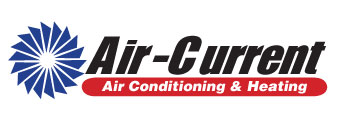
Big changes are on the way for the heating and cooling industry! Cooling systems transitioning from R-410a to newer refrigerants like R-454B refrigerant and R-32 refrigerant will be arriving in 2025. These new coolants are developed to be friendlier to the environment and comply with revised regulations about global warming. But what does that mean for your current HVAC system and future services?
This shift will minimize the environmental impact of our air conditioning systems. In 2025, new AC systems will use new class of refrigerants that are more compatible with climate goals. If you're contemplating getting an AC replacement soon, this is the perfect time to explore how these updates can influence your home's comfort.
Why Is R-410a Refrigerant Being Phased Out by New Regulations?
For years, R-410a was the standard refrigerant for residential air conditioners because of its efficiency. But analysis showed that R-410a still negatively impacts global warming. As a result, the Environmental Protection Agency (EPA) implemented an initiative back in 2021. The industry will steadily eliminate R-410a to make room for refrigerants that are more eco-friendly.
The HVAC industry has undergone transitions like this before. When the industry phased out R-22 (commonly called Freon) to R-410a, homeowners like you had to follow suit. And just like then, this transition will affect how systems are designed as well as the recommended procedures for HVAC maintenance. Both property owners and HVAC technicians must get ready for these new refrigerants if they want to keep experiencing the most secure, most economical cooling possible.
Which New Refrigerant Is Replacing R-410a?
The coming refrigerants are categorized under the new "A2L" classification and encompass the newest R-454B refrigerant and R-32 refrigerant coolants. They're created to offer the same efficient cooling while greatly lowering their global warming potential (GWP) compared to R-410a.
R-454B refrigerant is believed to be particularly useful due to its GWP being approximately 78% less than R-410a. While R-454B refrigerant is technically more flammable than R-410a, updates to system configurations and maintenance practices will ensure servicing is just as safe to perform. Additionally, contemporary cooling systems using R-454B refrigerant are considerably more energy efficient, leading to considerable savings on energy bills over time, especially if you maintain your system with routine HVAC maintenance.
This change isn't just about substituting the refrigerant—it affects the whole HVAC system because the components of R-454B refrigerant make it incompatible with older systems. Ultimately, every home and business using R-410a will be required to transition to one of the new systems.
R-410a Replacement: What Do I Need to Do to Switch to New HVAC Refrigerants?
Switching to the new refrigerants won't be as easy as substituting what's used in your home's HVAC system. That's because the distinct properties of R-454B refrigerant and R-32 refrigerant mean you can't use them in a system that uses R-410a. But don't be concerned—you can continue to use your current R-410a system for now. Just remember that as time passes, the cost of repairs and tune-ups will go up as R-410a becomes less available.
Preparing in advance is the optimal way to handle things. If your AC system is currently getting old, this is the ideal time to contemplate switching to a newer model that uses the new R-454B refrigerant. Plus, the staff here at Air Current AC & Heat can assist you in upgrading with flexible options for HVAC replacement financing.
What HVAC Refrigerant Does My Air Conditioner Use?
Uncertain which refrigerant your AC system utilizes? In general, you can easily find this information by checking the label on your outdoor unit. This label displays the type of refrigerant, the model number and many other details about your cooling system.
But if you can't read the label or are missing your user manual, don't stress! You can always call one of the skilled technicians at Air Current AC & Heat to assist you in identifying the refrigerant. Get all the info you need by contacting us at 713-257-9226.
